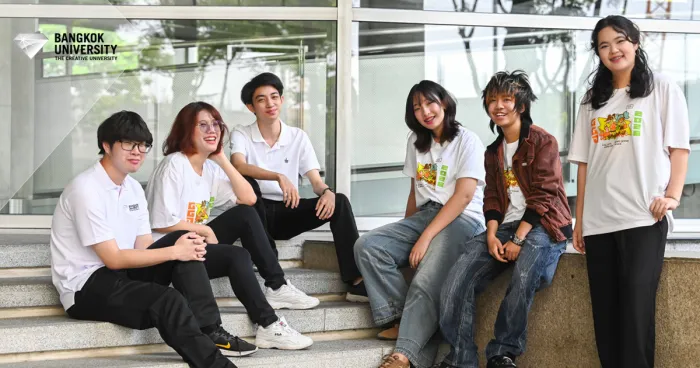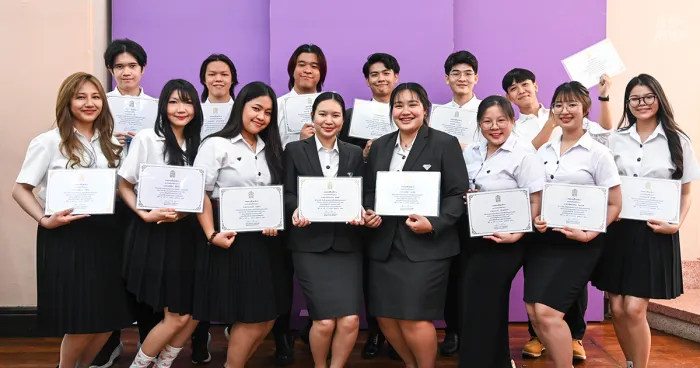Featured Stories
Featured Stories — Bangkok University Lecturer Designs Innovation for Justice 'Where the Silence Speaks'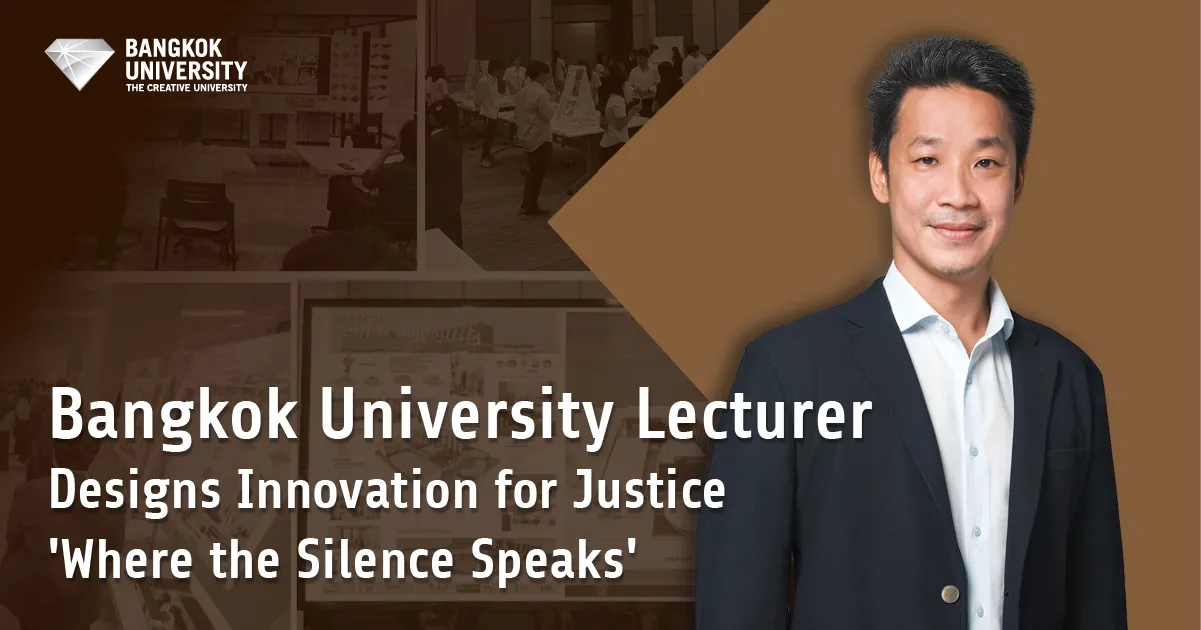
Bangkok University Lecturer Designs Innovation for Justice 'Where the Silence Speaks'

Under a people-centered approach to the justice system, Asst. Prof.Dr.Rittirong Chutapruttikorn, a research and educational innovation development lecturer at Bangkok University, has initiated and developed the "Where the Silence Speaks" project. The project aims to improve the quality of life for vulnerable female inmates, particularly pregnant women or those with young children in prison, by gathering diverse perspectives through research, teaching, exhibitions, art, and policy collaboration.
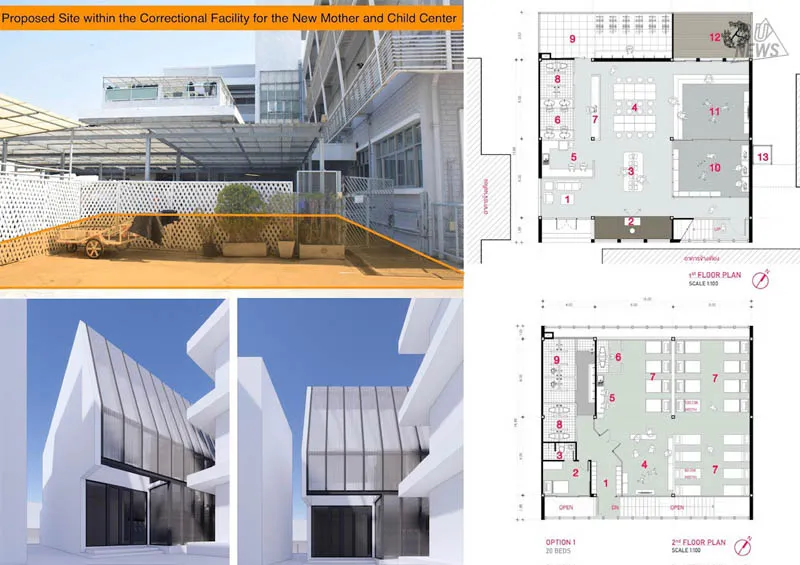
One of the project's core principles is enabling inmates to express their opinions fully while feeling safe, despite limitations in freedom and location. It focuses on developing accessible and user-friendly tools and processes for data collection, and creating psychologically safe spaces where inmates can genuinely express their needs.
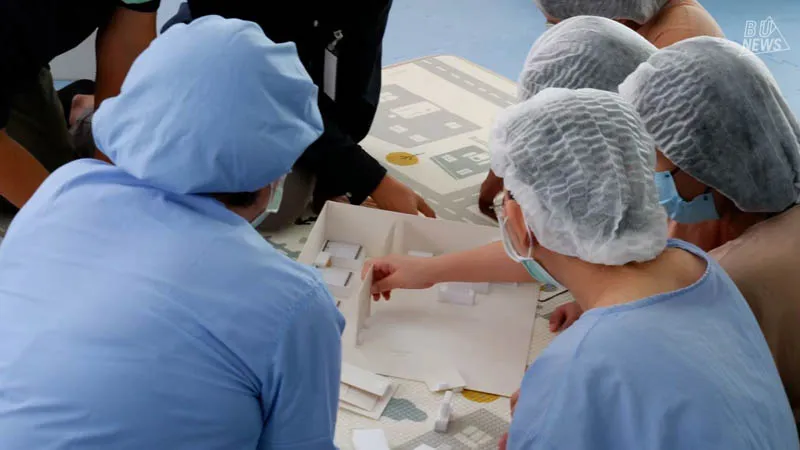
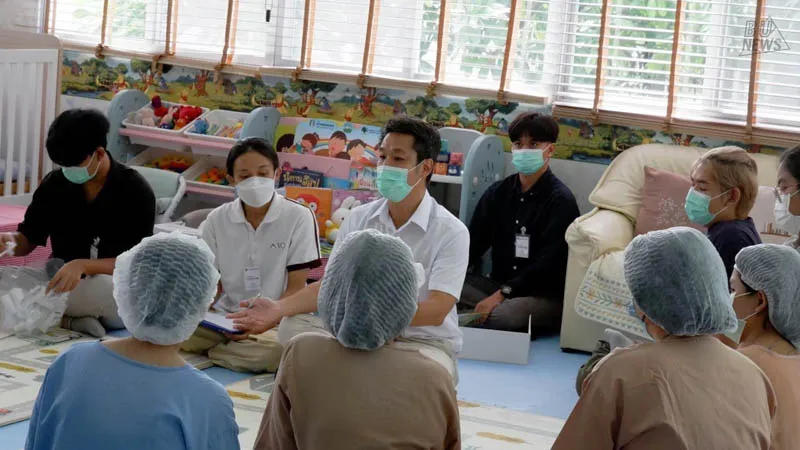
"The critical challenge isn't just gaining access to prisons, but breaking down the 'architecture of silence' deeply embedded in these women's minds—women who feel they have no right to speak or imagine a better life," said Asst. Prof.Dr.Rittirong "The research team works with corrections officers, students, designers, formerly incarcerated women, and human rights experts. Initial tools were tested with former inmates before being implemented with groups of pregnant female inmates and mothers with infants in prison. All work is conducted under strict human research ethics standards, approved by the ethics committee, with special emphasis on protecting the rights of vulnerable groups regarding mental well-being, voluntary participation, and privacy."
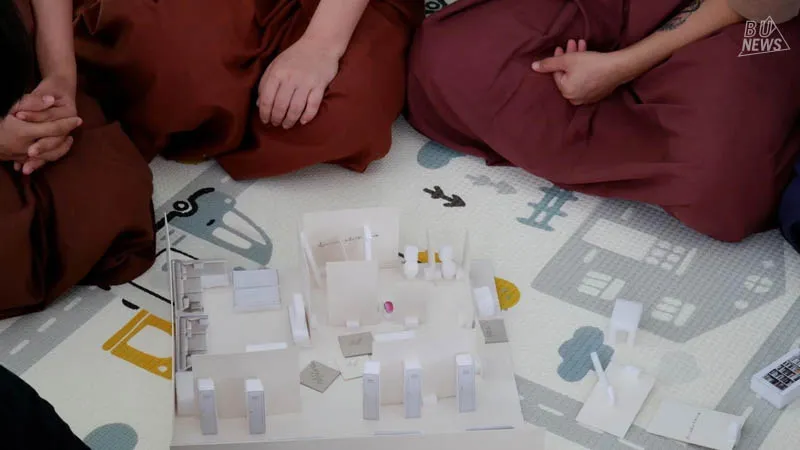
This process led to the development of a prototype Mother and Child Center at the Central Women’s Correctional Institution, Khlong Prem, using the innovative concept of "Creative Pragmatic Co-Design" developed specifically for working in highly restrictive environments such as prison systems. The collaborative outcomes received official recognition at the policy level, with the Director of the Central Women’s Correctional Institution inviting the research team to present designs for budget planning and future construction. This represents a significant case study of how participatory design can impact infrastructure in controlled spaces.
Beyond physical transformation, the project has also shifted the conceptual framework of prisons, reframing the role of "space" not merely as a means of control, but as a space of understanding, healing, and restoration of human dignity for one of the most vulnerable groups in the justice process.
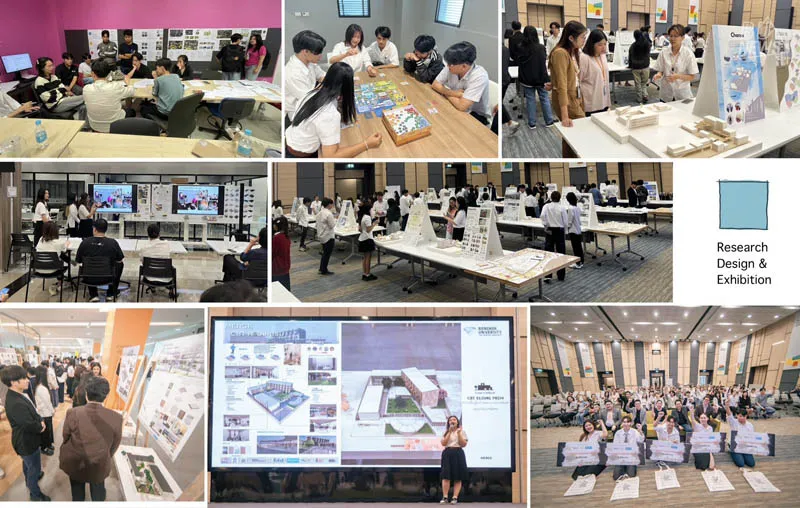
These data collection tools have been further developed for designing post-release detention facilities, public exhibitions such as "Walls to Welcome" and " Luen–Jum (Fading Memories)," real-world problem-based curriculum development, and adaptation for use with other groups including ex-offenders and other vulnerable populations such as children, the elderly, or those in highly controlled environments.
The data collection tools have received two national awards: the ASAIHL Thailand Outstanding Achievement Award 2024 (Social Engagement category) and the Distinguished Academic Award in the Social Sciences 2024 (Merit level), reflecting the quality, continuity, and significance of using design as a tangible tool for justice.
For more information , please click : https://sdgs.bu.ac.th/highlights/

Information
Register Info
Contact Us

